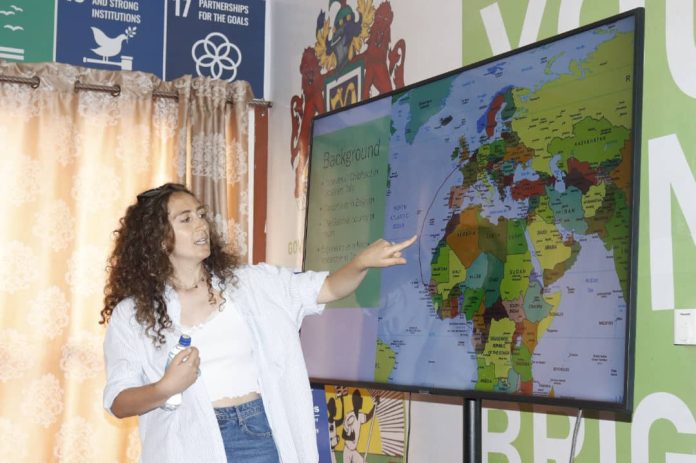By: Fatou Dahaba
In a passionate plea, European researcher Rossella Marino has called for an end to international interference in The Gambia’s migration policies.
Marino, whose research focuses on European migration governance in The Gambia, argues that if Europe is truly serious about stopping irregular migration, it must adopt policies that cease the criminalization of migration.
“International organizations should stop interfering in the internal issues of The Gambia, and donors should stop dictating what should happen,”
Marino said in an exclusive interview with TAT.
She emphasized that it is detrimental for donors to dictate to local actors who are merely implementing these international donors’ decisions at the grassroots level.
Marino asserts that the West should implement migration policies that favor everyone equally.
“There should be fair policies for the movements of people because, as a white person, I can freely and safely come to The Gambia without a visa. I have a free visa to stay in Africa for three months. They must ensure that all people, including African people, are subjected to the same treatment. No mobility should be safer than other mobilities. Everybody should be subjected to the same fair mobility treatment,” she explained.
“At the international level, there must be laws that guarantee the movement of all citizens in the world is safe, regular, and dignified, but this is not the case right now.”
Marino also highlighted the exploitation and discrimination faced by migrants upon their arrival in Europe, often leading to trauma. She pointed out that discussing reintegration is meaningless without addressing the core issues, particularly the independence of African countries.
To effectively tackle irregular migration, Marino insists that the international community cease its involvement in The Gambia, as it is more detrimental than beneficial.
“They would say they want to help, but in reality, they’re giving all those millions to continue to control the population of The Gambia. They have to leave Gambia alone, ensuring the country is free in political association and free as a market to produce their own products without the involvement of the West.”
Furthermore, Marino stressed the importance of an education system in The Gambia that is truthful to the country’s cultures and values rather than one influenced by external interests.
“If they continue and engage in meaningful support, they have to leave their interest aside, but if they are not willing to do that, it means they have to disengage,” she concluded.
Marino’s insights call for a fundamental shift in the international community’s interaction with The Gambia, emphasizing autonomy and fair treatment for all in the global migration landscape.






